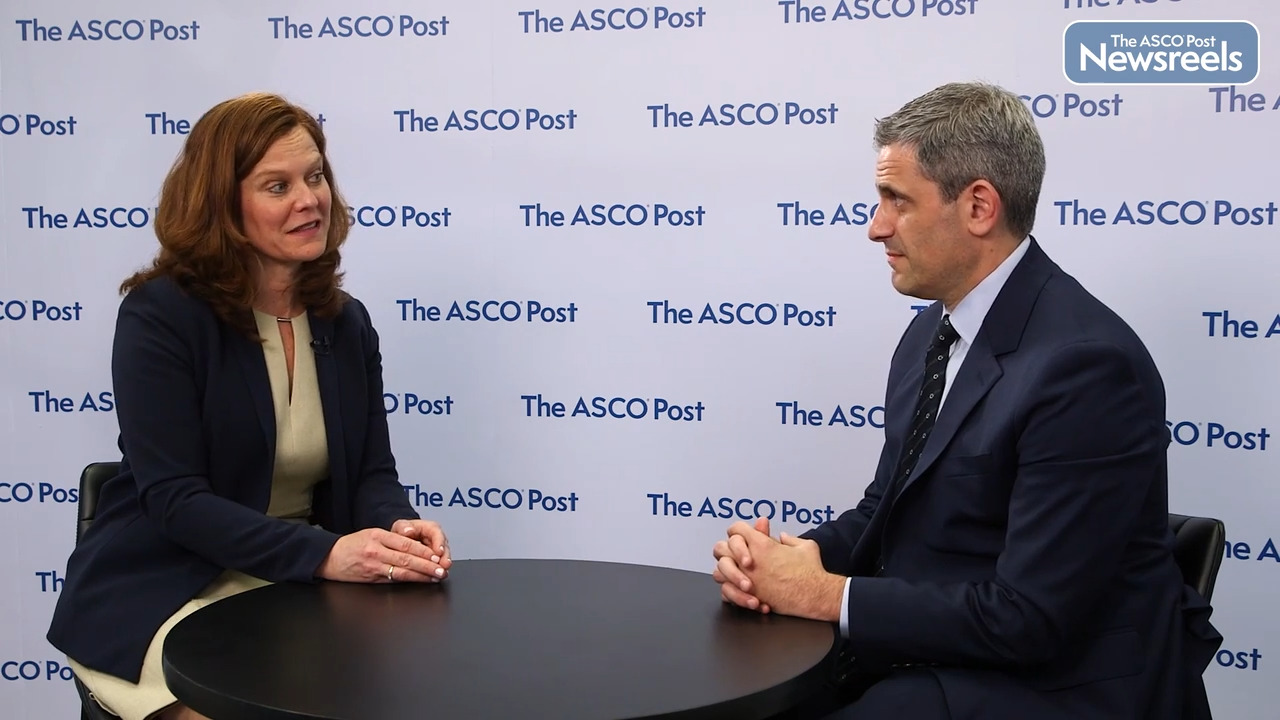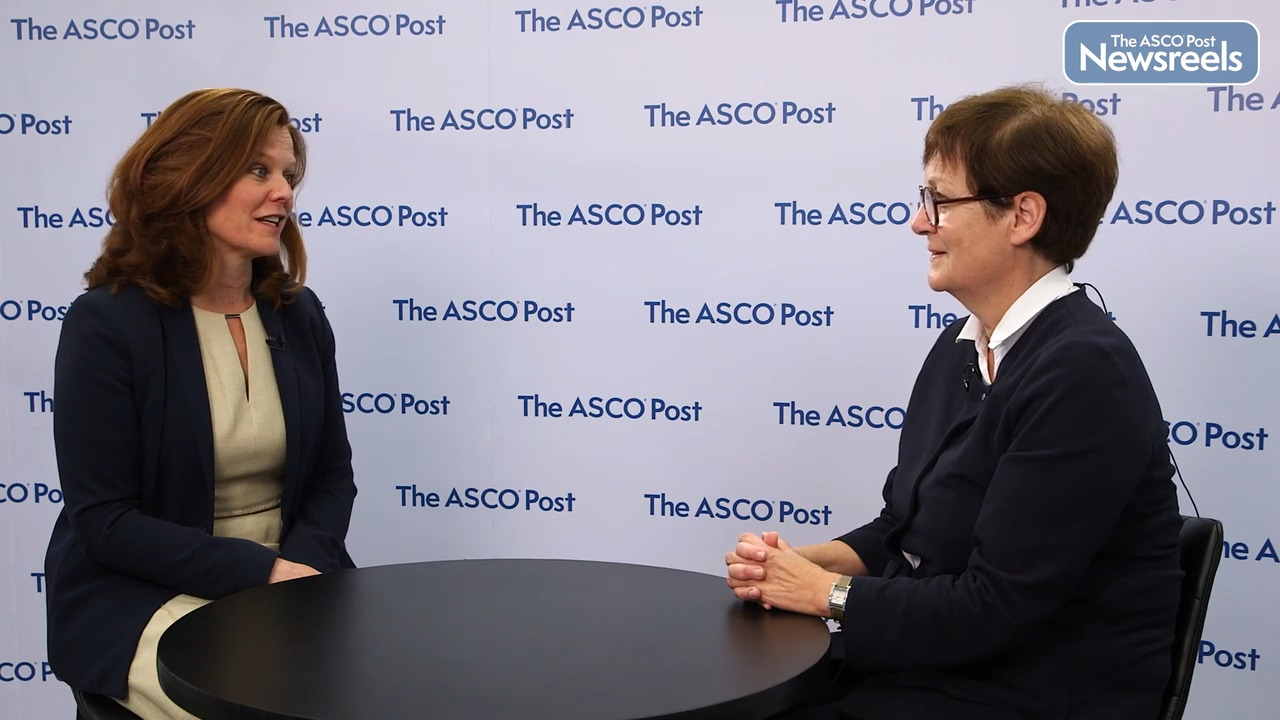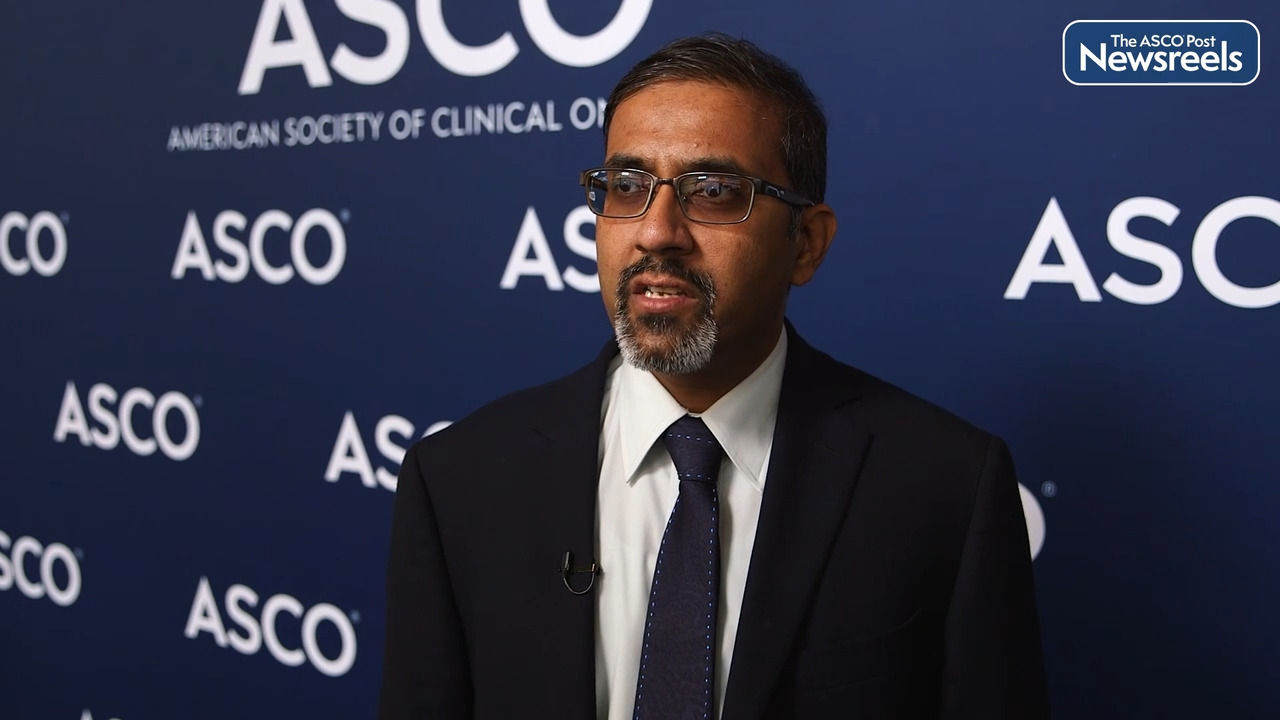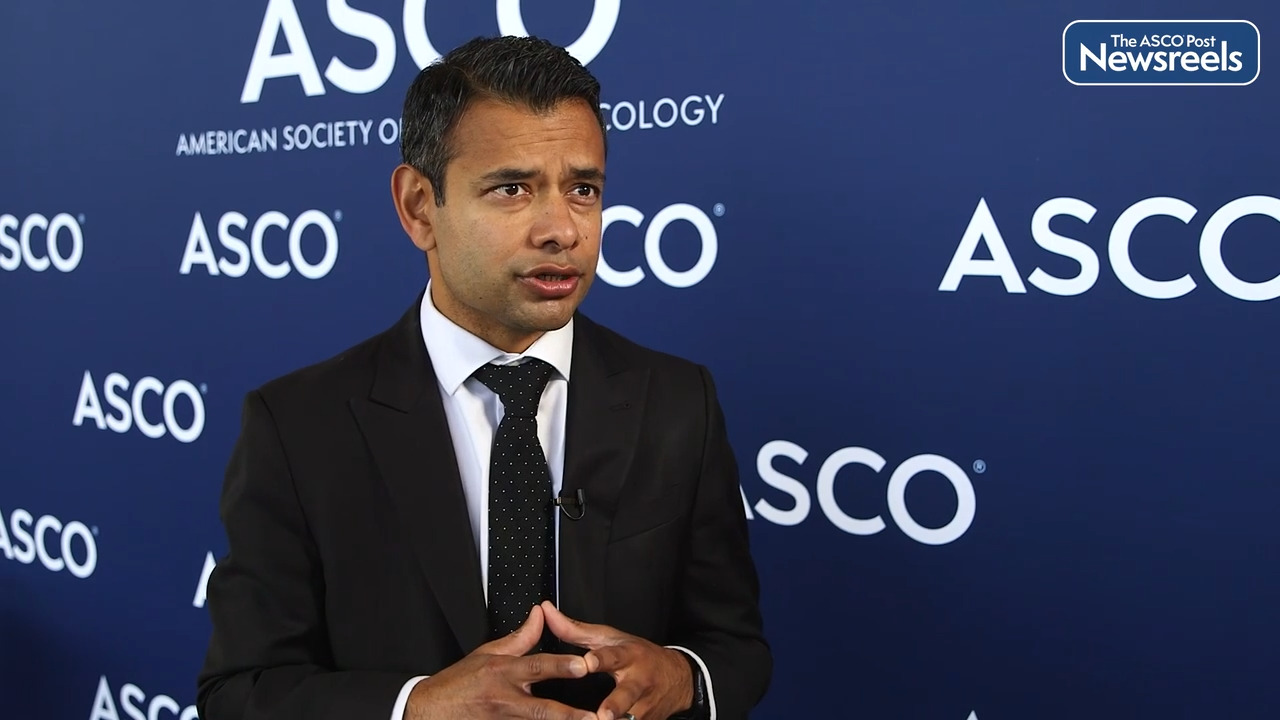Stephanie Walker on Increasing the Participation of Black Women With Metastatic Breast Cancer in Clinical Trials
2022 ASCO Annual Meeting
Stephanie Walker, a former nurse and current activist with the Metastatic Breast Cancer Alliance, discusses findings from the BECOME project (Black Experience of Clinical Trials and Opportunities for Meaningful Engagement). They show that, even though Black patients comprise between 4% and 6% of all clinical trial participants, Black women with metastatic breast cancer are willing to consider taking part if steps were taken to increase their awareness, build trust through clear communication with health-care providers, involve people of shared racial/ethnic identity and health experience, and help patients find and access trials (Abstract 1014).
Transcript
Disclaimer: This video transcript has not been proofread or edited and may contain errors.
My project for ASCO this year was to include or increase participation of black men and women with metastatic breast cancer in clinical trials. First of all, I think we need to inform. We not only need to inform the patients about clinical trials, but we also need to inform you as a healthcare provider to ask us. Because the majority of the patients that were asked on this survey, if they knew about clinical trials, they didn't know. I think it is part of the job of the healthcare provider to ask us. Don't assume that we don't know about it, or we know about it and choose not to. Don't assume that we can't afford it. Don't assume that we're not educated enough to do this. Everybody needs to be informed. Next, we need to inspire. You need to inspire us as the patient. You need to help build that bond regarding trust and the healthcare provider, which is you. We need to inspire trust, even though we know the trials and tribulations in the past, we need to go forward. You need to ensure that we know where we can get in touch with people regarding the clinical trials. We also need to ensure that we know how to utilize the resources, to look for clinical trials or where to find those. Also, you need to address the barriers. Financial is the biggest barrier that we have. You need to help us by providing a meal because a clinical trial is all day. Or parking. We have childcare that we need to attend to. Help address some of those little barriers. They may seem little to you, but they are huge barriers for us. If you take care of the barriers, ensure that we know where to contact or where to enroll in clinical trials, inspire, develop the trust, and we need to inform the patient and yourself about including and talking to us about clinical trials. With that being said, we are going to do a follow-up study to reach those that we were unable to reach, which were those people in rural communities that are not connected to internet or not connected to a university-based institution, because 80% of all the cancer patients are treated in community-based cancer centers. I encourage you to look at other methods of including us in clinical trials. Instead of having me fly from the east coast to the west coast, to do a clinical trial or fly from the east coast to the west coast, to get CT scans when I can get them five minutes down the road. I need you to address some of those logistics, some of the barriers regarding finances. I also need you to know us. Get to know your patients in that 15 minutes, I know is a short period of time that you have to spend with us in the office, but you also need to inform us. Do not assume. Inform us of clinical trials.
Related Videos
The ASCO Post Staff
Ann H. Partridge, MD, MPH, of Dana-Farber Cancer Institute, and Kevin Kalinsky, MD, of Winship Cancer Institute at Emory University, discuss phase II findings from the MAINTAIN trial, which showed a benefit in progression-free survival for patients with hormone receptor–positive/HER2-negative metastatic breast cancer when they switched to endocrine therapy and received ribociclib after disease progression on another CDK4/6 inhibitor (Abstract LBA1004).
The ASCO Post Staff
Timothy J. Whelan, MD, of McMaster University and Hamilton Health Sciences, discusses findings from the LUMINA study, which found that women aged 55 or older who had grade 1–2 T1N0 luminal A breast cancer following breast-conserving surgery and were treated with endocrine therapy alone had very low rates of local tumor recurrence at 5 years. These patients, the research suggests, may be able to forgo radiotherapy (Abstract LBA501).
The ASCO Post Staff
Ann H. Partridge, MD, MPH, of Dana-Farber Cancer Institute, and Véronique Diéras, MD, of the Centre Eugène Marquis, discuss the many challenges posed by next-generation antibody-drug conjugates (ADCs). They include side effects such as hematotoxicity, gastrointestinal toxicities, and interstitial lung disease; tumor targeting and payload release; drug resistance; and the urgent need to understand ADCs’ mechanisms of action to better sequence and combine drugs.
The ASCO Post Staff
Apar Kishor Ganti, MD, of the University of Nebraska Medical Center, discusses results from the CALGB 30610 study, which showed a similar clinical benefit for once- and twice-daily radiotherapy administered to patients with limited-stage small cell lung cancer. While both regimens were well tolerated, patients who received radiotherapy once daily had better quality-of-life scores at week 3 and slightly worse scores at week 12. Patients believed the once-daily regimen was more convenient (Abstract 8504).
The ASCO Post Staff
Sumanta K. Pal, MD, of City of Hope National Medical Center, discusses findings from the COSMIC-021 study, which showed that cabozantinib plus atezolizumab demonstrated encouraging clinical activity with manageable toxicity in patients with inoperable locally advanced or metastatic urothelial carcinoma. The combination was administered as first-line therapy in cisplatin-based chemotherapy–eligible and –ineligible patients and as second- or later-line treatment in those who received prior immune checkpoint inhibitors (Abstract 4504).





